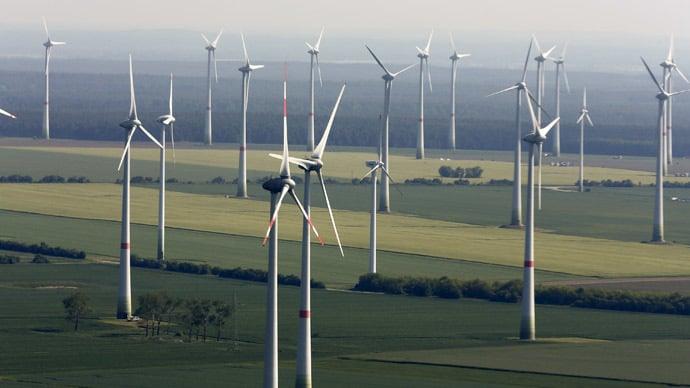Islamabad:
Pakistan needed more than $ 100 billion to move its policy towards renewable energies to carry out a neutral carbon energy sector, officials of the climate ministry informed the Senate’s permanent committee on Wednesday.
They said the country needed $ 50 billion to reach 60% renewable energy target by 2030, more investment to reduce emissions by 50%, in addition to $ 18 billion to operationalize Fully the National Plan for Energy and Conservation Efficiency (NEECA) 2023-30.
The committee met its president Sherry Rehman here to the President. The meeting was informed that the support of the global environmental installation (GEF) and the Green Climate Fund (GCF) would play a crucial role in the implementation of the plans and the achievement of the climatic objectives.
The Committee received a briefing from officials from the Ministry of Industries and Production on Electric Vehicle Policy (EV). Officials said his Prime Minister trained a DV policy steering committee.
During the meeting, the secretary of climate change said that the introduction of electric vehicles in public transport was crucial to reducing carbon emissions. He said the transport had the greatest impact on air quality, adding that a proposal to subsidize the two and three wheels was currently being studied.
However, the president noted that pollution from other sources was propagated more than vehicle emissions. She also criticized the officials of the Ministry of Industries for lack of preparation. “It is unfortunate that civil servants do not even know the exact number of local electric vehicle manufacturers,” she said.
Rehman asked civil servants how they planned to operate electric vehicles without a clear strategy. She stressed that the government could not stop solarization by modifying the regulations of the net measurement. She urged the Ministry of Climate Change to oppose any policy that discouraged solar energy.
The Minister of Energy, Awais Leghari, told the committee that a solar revolution was already underway in the country. He reminded the committee that he had introduced regulations on net measurement in 2017 and assured that it was not planned to discourage solarization.
Leghari said solar investments were currently recovered in the 18 months, but under the new regulation, this period would extend to four years. He noted that owners of solar systems sold electricity to Rs22 per unit. However, he stressed that the government bought electricity from solar producers at high costs and sold it to consumers at lower rates.
Senator Zarqa Taimur urged the government to reduce transmission losses and stressed that agreements under net measure should remain unchanged. Leghari warned that if the new regulations were not applied, other consumers would support an additional burden of 103 billion rupees.
Leghari revealed that the government had left direct purchasing activities of electricity from producers. He also revealed that the plans were in hand to divide the National Transmission and Dispatch Company (NTDC) into three entities.
The Minister of Energy confirmed that discussions with the International Monetary Fund (IMF) were underway for a three -year energy set and assured that the government intended to allocate electricity to industries to affordable prices.
Leghari recognized that previous power plants were installed in various policies, but in a new system, future power plants would be installed through a competitive tender process. He underlined the need for green finance to support the transition.
According to Leghari, 2,500 MW of thermal power plants had already been removed and the government actively worked to speed up the transition to green energy. He added that the government was working to retire its power -based oven -based electric power plants that required green funding.
Leghari stressed the importance of attracting investments to successfully implement the EV policy. He argued that more accusation terminals would encourage the adoption of electric vehicles. “With more charging stations, people will be more inclined to switch to electric vehicles,” he said.
The secretary of climate change told the committee that the State Bank of Pakistan (SBP) was actively working on the financing of green energy projects. However, Rehman criticized a slow progression. “Even after five years, the authorities still say that the State Bank is working there,” she said.
Sherry Rehman senator called for the availability of loans to consumers for the transition to electric vehicles. Managers of the Ministry of Climate Change confirmed that the federal government had introduced a special rate for EVS charging stations.




